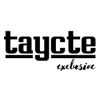During the CAGNY conference in Florida, Food Dive talked to top food executives to gain insight into how CPG companies are positioning their businesses to tap into growth areas amid rapid changes in consumer tastes. This is the second in a five-part series. To read the first story on Tyson Foods, please click here.
For a company with soup it its name, Campbell Soup has gone to great lengths to show consumers and investors that it's more than just the eponymous canned product it has been associated with for nearly 150 years.
"When I got here we were pretty much a one trick pony and all people wanted to talk to me about was soup and canned soup," Denise Morrison, Campbell Soup's CEO, told Food Dive at the annual Consumer Analyst Group of New York conference in Florida. "That's still a really important topic for us, but I can now proudly say we are soup and other things, and other things that are meaningful to the consumer."
Soon after she took the helm in 2011, Morrison started looking for faster-growing areas Campbell could enter; eventually settling on snacking and health and well-being. It also began overhauling its product line to reflect market trends. Campbell is on track to remove artificial colors and flavors from nearly all of its North American products by the end of its fiscal 2018, and it has made all its cans in the U.S. and Canada non-BPA lined. In addition, it has introduced new items with simple ingredients to appeal to consumers seeking clean labels, including its Well Yes! line of soups.

The most aggressive attempt to diversity Campbell's portfolio and expand its presence into faster-growing segments have come through a series of big acquisitions. The New Jersey company is hardly alone in this endeavor.
M&A has been viewed by Campbell and other large CPG companies looking for growth as the fastest way to boost revenue and respond to consumers who are shunning processed center-of-the-store items in favor of more organic, fresh and clean label products typically associated with more nimble upstarts.
The first wave of deals at Campbell expanded the company's reach into fresh, organic and better-for-you products. They include:
- 2012: Bolthouse Farms, a maker of carrots, smoothies, juices and dressings, was acquired for $1.55 billion.
- 2013: Acquired children's food and snack company Plum Organics for an undisclosed price.
- 2015: Garden Fresh Gourmet was purchased for $231 million, bringing its refrigerated salsa, hummus and dips into Campbell's portfolio.
- 2017 Snapped up natural and organic brand Pacific Foods of Oregon for $700 million in cash.
But late last year, a few days after the Pacific deal closed, Campbell doled out nearly $5 billion to acquire Snyder's-Lance, the manufacturer of popular snacks such as Pop Secret, Kettle, Cape Cod and Emerald. It was the company's largest-ever deal, and its boldest bet yet to claim a stake in the fast-growing category.
"One thing that I'm 100% certain is that the pace of change will continue to increase," Morrison told analysts during her presentation at CAGNY. "In fact, over the next several years we believe that the rise of millennials and a changing retail landscape, coupled with an emerging set of new variables, will only accelerate the transformation of the food industry."
While the food giant has a large presence in the center of the store where sales are lagging throughout the industry, Snyder's-Lance allows Campbell, which already owns snack brands such as Goldfish crackers and Pepperidge Farm cookies, to better tap into millennials, snackers and on-the-go consumers. Once the deal closes, which is expected before the end of March, soup will go from making up roughly 35% of the company's sales to 27%, while the all-important snacks segment will jump to nearly 50% from 31%.
A show me story
Despite these deals, coupled with an overhaul of Campbell's product line to highlight whole grains and vegetables while removing artificial colors and flavors, the company's sales have fallen. Earlier this month, Campbell posted what Morrison called "a disappointing quarter" amid challenges in its fresh division as well as soups where sales slide 7%.

While some of the decline in the second quarter in soups was the result of a promotional dispute with Walmart, according to media and analyst reports, consumers continue to turn away from soups they view as overly processed and lacking healthier ingredients. Morrison said sales declines in soup should begin to "moderate" in the second half of the year. The company's fresh-food products, such as Garden Fresh Gourmet and Bolthouse Farms, also struggled, posting flat sales during the period.
Brittany Weissman, an analyst at Edward Jones, praised the Snyder's-Lance purchase as a way to put Campbell into faster-growing areas.
But Wall Street, she said, has started to grow skeptical of the company's ability to execute as Bolthouse has faced weather challenges and a recall, while Garden Fresh has struggled to generate consumer interest beyond its core audience in the Midwest. Weissman speculated that Campbell Soup, which has its roots in packaged-foods, has found the fresh business to be more difficult than it initially anticipated.
"It just seems to be one challenge or hiccup after another and so that's led people to view it as, can they execute?" Weissman said. "There is a general frustration. People will very much will believe it when they see it."
In just the last year alone, Campbell's stock price, like other CPG companies, has slumped, dropping from nearly $60 a share this time last year to roughly $44 on Monday, a 27% decline.
Still, Morrison is confident Campbell is on the right track, and over time recent moves will better position the company to grow as it benefits from a shift in food consumption habits. An estimated 44% of the company's annual net sales now come from brands that meet consumer defined health and well-being attributes, placing it in the top third of all food companies, she said.
"I’m looking at this for the long term," she said. "We have been setting up the company right now while things are changing so that we're poised to navigate that change over the long-term. I believe that's the key to creating shareholder value, if you get the right drivers in place and you are playing the right spaces."
Morrison said Campbell has considered renaming the company to better reflect its breath of products that also includes V8, Prego, Swanson and Pace, but for now has decided to keep it.
"At the right point we'll figure out what the right thing to do is," she said of the name, before adding: "There is heritage in the soup."






















